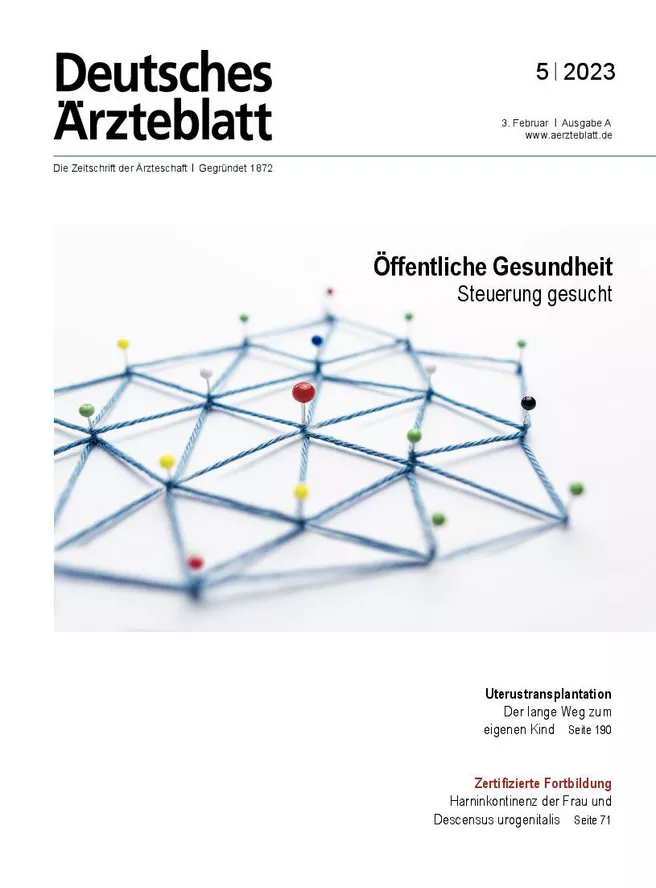According to statistics from the Robert Koch Institute, colorectal cancer is the third most common cancer. In Germany, around 33,000 men and 26,000 women are affected by new cases every year. Most colorectal carcinomas arise from growths that form in the mucous membrane of the colon. Several factors such as diet (especially red and processed meats), overweight/obesity, smoking, and alcohol are associated with increased risk of disease. Physical activity and fiber consumption, on the other hand, are protective factors. Most of the current evidence is based on studies in people aged 50 years and older. Accordingly, it is currently unclear whether this also applies to younger populations. Colorectal cancer occurs more frequently after the age of 50. The median age of onset is 72 years for men and 75 years for women.
Colorectal carcinoma, i.e. cancer of the large intestine (colon carcinoma) or rectum (rectal carcinoma), is one of the most common malignant tumors. About 95 percent of new cases each year are diagnosed after the age of 50. However, the incidence of early-onset colorectal cancer diagnosed before age 50 is increasing, especially in high-income countries.
Within the framework of a study, the Chair of Epidemiology headed by Prof. Dr. Stefanie Klug analyzed the development of early-onset colorectal carcinomas in Germany. The results were published under the title "Steigende Inzidenz des früh auftretenden Kolorektalkarzinoms" in "Deutsches Ärzteblatt". The journal has an impact factor of 8.251.
For the analysis, the Center for Cancer Registry Data (ZfKD) of the Robert Koch Institute provided data on the incidence of colon cancer for the period 1999 to 2018. Cancer registries in the states of Bremen, Hamburg, Münster, Rhineland-Palatinate, Saarland, and Schleswig-Holstein were able to provide data for the entire evaluation period. These registries include 12.9 million inhabitants, representing about 16 percent of the German population.
"In principle, the incidence of colorectal cancer has decreased both in Germany and in other high-income countries," explains Dr. Luana Fiengo Tanaka, Research Associate at the Chair of Epidemiology and first author of the publication. "However, we found that especially among younger people, the numbers have increased significantly."
Using the data, it was possible to analyze that colorectal cancers in the age group 20-49 account for 5.1 percent of colorectal cancer cases in Germany. In men, the incidence increased by 1.16 percent annually, and in women by as much as 1.32 percent. Most tumors (58.4%) occurred in the colon, or large intestine. The greatest increase in colorectal cancer was observed in the 20-29 age group. Among men in this age group, the rate increased by 4.4 percent per year, and among women by as much as 6.4 percent.
"In the U.S., as many as 12 percent of cases currently affect people younger than 50," Dr. Tanaka said. Just recently, the American Cancer Society and the U.S. Preventive Services Task Force updated their recommendations on colorectal cancer screening, lowering the age for initial screening from 50 to 45. In Germany, health insurers cover the cost of screening colonoscopy for men aged 50 and older and for women aged 55 and older every ten years, up to a maximum of twice in a lifetime. Alternatively, men and women between the ages of 50 and 54 are entitled to an annual immunological fecal occult blood test (iFOBT), which is a reliable screening method for colorectal cancer and its precursors, every two years from the age of 55. Since July 2019, all insured persons aged 50 and older have also been regularly informed by their health insurer about colorectal cancer screening by mail.
The reasons for early-onset colorectal cancers have not been conclusively clarified at the current time. "Possible causes could be obesity as well as a lack of physical activity, especially among younger people in Germany. However, an unhealthy diet and the use of broad-spectrum antibiotics, which can lead to changes in the intestinal microbiome and inflammation, could also contribute to the development of early-stage colorectal cancer," Dr. Tanaka said.
"Prevention is particularly important and effective in colorectal cancer. On the one hand, very many colorectal tumors can be prevented with primary prevention, i.e. one's own healthy behavior, such as a healthy diet and plenty of exercise. On the other hand, there is a very effective secondary prevention, namely early cancer detection. Pre-cancerous lesions can be detected and removed at an early stage through the possible detection of blood in the stool and, even more effectively, through two colonoscopies in a lifetime. However, it is very important to participate in early cancer detection," explains Prof. Klug.
To the homepage of the Chair of Epidemiology
To the publication „Steigende Inzidenz des früh auftretenden Kolorektalkarzinoms” in "Deutsches Ärzteblatt"
Contact:
Prof. Dr. Stefanie Klug
Chair of Epidemiology
Georg-Brauchle-Ring 56
80992 München
phone: 089 289 24950
e-mail: stefanie.klug(at)tum.de
Dr. Luana Fiengo Tanaka
Chair of Epidemiology
Georg-Brauchle-Ring 56
80992 München
phone: 089 289 24960
e-mail: luana.tanaka(at)tum.de
Text: Romy Schwaiger
Photos: "Deutsches Ärzteblatt"/private


